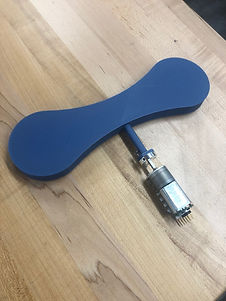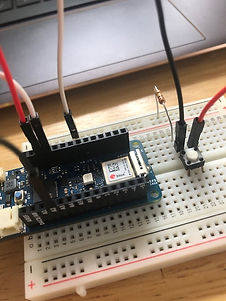Electronic Labwork
The majority of my electronics courses have had hands-on labwork. Through the labs in my Electronics II, Instruments & Experiments, and Dynamic Controls courses, I've learned so much about applying theoretical knowledge to real life. Understanding the limitations of instruments and the additional assumptions required for actual use.
February - May 2021
For my Electronics II class, we did a large amount of hands-on labwork using an Arduino module in Matlab. Though this course was fully remote, we were still able to work on projects, creating control systems for instruments like DC motors, encoders, and thermistors.




Compiled Electronics II Lab Reports
Zosia Stafford, Natalie Sheehan, and Matt Diamond
February - May 2021
In my Instruments & Experiments course, each of our labs focused on a specific instrument commonly used in research and experiments. We looked at strain gauges, thermocouples, accelerometers, op-amps, and microphones. Each of these labs was designed to give us experience working with these tools and seeing how to interface them with Arduinos and Labview using the NI-DAQ system.
September - December 2021
In Digital Controls and Dynamic Controls, our labwork focused on controlling a pendulum, DC motor, and encoder system. Using Labview and a MyRio, we had the motor act as a pendulum, introducing frequency control, impedance, spring motion, and more.

